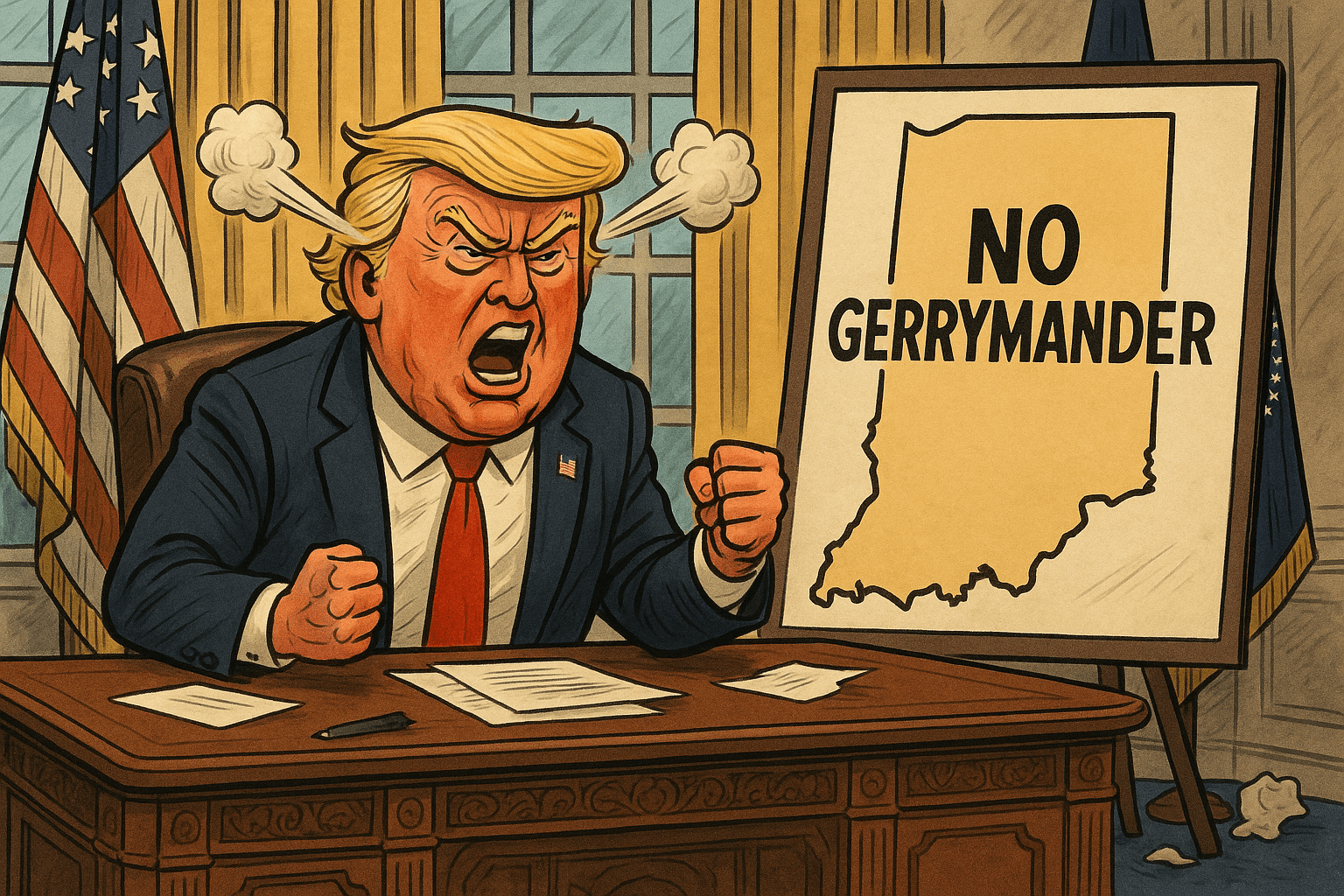Arizona Rejected Primary Reform in 2024, But Voters Don't Support the Status Quo Either

Photo by Nils Huenerfuerst on Unsplash.
Election Day was mostly a rough night for election reformers across the board, from primary reform to new voting methods to gerrymandering. However, it would be a mistake to suggest that this means voters are okay with the status quo.
Especially, when US adults have overwhelmingly voiced their frustrations and disapproval with a system that gives them the same two options every election cycle.
In fact, when Arizona voters were given a chance to enshrine the partisan-controlled system currently in place in the state constitution, they rejected the proposal by nearly the same margin as nonpartisan reform.
Arizona's Proposition 133 would have done 3 things:
One, it required partisan primaries across the state for partisan offices. Two, it banned the use of all-candidate and all-voter nonpartisan primaries. Three, it ensured the state's direct primary law superseded local charters.
In other words, local jurisdictions would not have been allowed to decide what election systems work best for their communities.
Prop 133 was one of several initiatives referred to the ballot by the Arizona Legislature. It was overwhelmingly supported by the Republican majority, as well as GOP-aligned groups like the Arizona Free Enterprise Club (AFEC).
The AFEC led lawsuits against Proposition 140 to end taxpayer-funded party primaries.
In support of Prop 133, State Rep. Alexander Kolodin said:
"Most voters are not centrist. Most voters are left, or most voters are right. And so, by structuring a system where all we can get out of it is moderates, nobody gets their first choice."
The claim is certainly disputable, but it is also a paradoxical statement. The argument made by election reformers is for a system that gives voters an equal voice and more choice in the process.
If Kolodin believes the outcome of this would lead to less ideologically rigid elected officials, then perhaps that is actually what voters want. It also tells on the current system, because party primaries do force specific types of candidates on voters.
In opposition to Prop 133, Democratic State Sen. Priya Sundareshan said:
"With this, we are preempting the ability of local, political subdivisions from holding elections in a certain format that they may see fit for their own political locality."
She added, "What we should be doing is allowing the laboratories of democracy to participate as the laboratories of democracy."
Voters rejected Proposition 133 with nearly 58% of the vote. This is an overwhelming majority of Arizonans who agree that the state should not shut down prospects for reform.
So Why Did Prop 140 Fail?
Prop 140 may have been similarly rejected because of an ambiguity surrounding it. The measure called for the end to taxpayer-funded party primaries, including in presidential preference elections if parties wanted to keep them closed.
This is pretty cut and dry. The proposal demanded equal access to elections for all voters and candidates, regardless of party. However, it didn't offer a specific replacement.
And this is where the ambiguity exists.
The measure took a novel approach in that it called for a nonpartisan primary system but allowed state lawmakers and/or the secretary of state to assign the type of system used.
This ensured more seats at the table to discuss and decide the future of elections, as long as all voters and candidates were treated equally. It also meant lawmakers couldn't say they were snubbed in the decision process.
That said, it didn't give voters a specific systemic solution to support. It was unclear to voters what elections would look like and those who benefit from the status quo capitalized on any voter confusion that existed.
This included creating their own confusion by suggesting the measure was something it wasn't.
Arizona voters appear open to their cities, counties, and their state to be laboratories for fairer, more accountable, and more representative elections. Fundamental to change is understanding how to make this happen.
The importance of a strong grassroots and/or voter education campaign cannot be understated. Voters need to understand the systemic mechanisms that incentivize putting party loyalty above the needs of voters.
This, in turn, can bolster their desire and enthusiasm for specific reform proposals to bring more voice and more choice to elections. But the cart cannot be placed before the horse.
And perhaps this is the lesson reformers will take away from the 2024 election cycle.
The path to reform is not an easy one. It can take years to build up the necessary grassroots movement in each state to create change. It requires dedication and a commitment to voter education -- along with patience
 Shawn Griffiths
Shawn Griffiths






